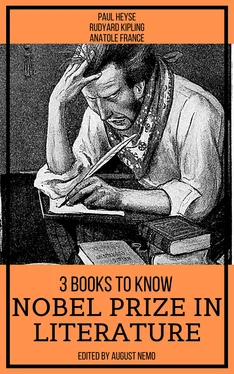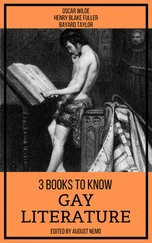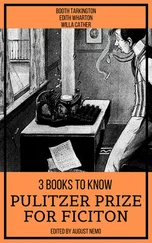He remained standing before her and held out both hands, but she continued to keep her arms folded over her breast.
"I don't understand you," she replied, "and moreover do not know why I should take the trouble to understand you—above all, why you should take the trouble to attempt to aid me in your own way. I do not feel at all sick, and what I need to make me happy neither man nor God can give. If the sense of your sinfulness has made you long for a 'Saviour,' I do not envy you this happiness. I am a lonely woman; I have nothing but myself, my pride, my obstinacy, if you choose to call it so. If I must lose this, must become a worm and wallow in the mire—then to be sure I too might probably succeed in crawling to the cross. But I do not desire a God, who must draw me to himself through sin and disgrace! If he cannot clasp his honest, upright creatures to his heart, I prefer to remain a step child."
"You prefer." said Lorinser in a low, but very impressive tone. "If you always can do so."
"Who is to prevent me from being faithful to myself?"
"One who is stronger than our wills: the devil."
"I am too old for nursery tales."
"Oh! my dear child," he replied, "there are nursery tales which we first experience, when our infant's socks are laid aside and we have discarded the nurse's milk for sound human reason. Have you never learned that some power is exerted over our wills by a sudden, as it were magical influence? Has no eye ever bewitched you, no voice ever set your blood on fire, no hand ever destroyed your defiant obstinacy by a single touch?"
A deep flush suddenly suffused Fräulein Falk's dark face.
"How do you presume to play the part of an inquisitor toward a lady whom you see for the first time?" she vehemently burst forth. "Be kind enough to leave me, sir, our conversation has taken a turn—"
She drew back as if to leave the way to the door open. He smilingly took his hat from the table, but remained standing in the middle of the room, waving it carelessly to and fro, with his eyes fixed upon the floor.
"You wrong me," said he. "I am not so indiscreet as to seek to force myself into your confidence. What I said was aimed at people in general. Inspired poets and sentimental children of the world talk of the magic of love. As if these things were not perfectly natural, so natural that the power exercised over the will has been very properly compared to chemical processes. The word magic can only be used when unnatural—supernatural things occur. If you follow the promptings of your inclinations, your blood, your nature, even were it along the worst paths, to the greatest injury of yourself and others—is there any witchcraft in it? Error, weakness, perversity—I repeat it—are very human evils, and do not lead to God. But to be urged on to what is most foreign, hostile to your nature, to be forced, in dread and horror, to do what you abhor, to be faithless to what is dearest—you see, Fräulein, that this only occurs under the influence of a powerful spell, the only one that still remains in this enlightened world, and whose consequences God scuds his pardoning mercy to destroy or efface: the magic of sin. I beg your pardon for having troubled you so long. Perhaps I shall frequently have the pleasure of conversing with you about these mysteries."
He bowed with the look and smile of a man, who has tamed a fierce lioness and can now venture to enter her cage alone. She stood speechless, and made no motion to accompany him to the door. Her arms hung loosely by her side, her chin drooped on her breast, her eyes were closed as if she had given herself up to gloomy thoughts.
Mohr and Franzelius were just going up the narrow stairs, as Lorinser closed Christiane's door behind him.
Coming from different directions, they had met at the outer door, and unwelcome as the encounter was to both—for Mohr, who had his play in his pocket, would also have liked to see the brothers alone—each was too awkward or too proud to avoid the other.
They had bowed in silence, and Mohr had allowed the printer to precede him. When they now met Lorinser on the stairs, Franzelius stepped aside like a person who unexpectedly treads upon a toad. The incident even made him forget his unfriendly relations with the eternal joker, and pausing on the landing he looked after the rapidly retreating figure, saying in a tone of the most intense abhorrence:
"Did you see that man, Mohr?"
"He came out of the young lady's room. Who is he? Where did you make his acquaintance, Gracchus?"
"He's the same malicious hypocrite who made that speech before our society. It's a pity the thought occurred to me too late, I might have thanked him for the information he gave the police."
"Or helped him down stairs a little faster; he seems to have scented this esprit de l'escalier!" Mohr replied, essaying to jest, but instantly added with a gloomy brow, "What did the pale rascal want there? Couldn't she have shut the door on him, as well as better people?"
"A bed-bug makes its way everywhere."
"You're right, Franzel!" replied Mohr with an angry laugh. Then twisting his under lip awry, muttered: "Eternal Gods! I would not have believed that a man could fall low enough to envy a bed-bug!"
––––––––

––––––––
He who undertakes to tell a "true story"—and ours is as fully attested as any a novelist ever gathered from family archives—he who represents life, as it is experienced, not imagined, must be prepared for all sorts of objections and contradictions. The most improbable events, as is well known, are those which most frequently happen, and on the other hand nothing meets with less credence than that which nobody doubts; though there are exceptions to the rule. Even on the stage we are not accustomed to have a lover play a character part, any more than it will be obvious to the readers of this entirely veracious history, when we report the authentic fact that Edwin, faithful to his voluntary vow, actually waited until the end of the week before he again entered the dangerous house in Jägerstrasse, nay that he even put his resolution to a still harder test, by waiting until the afternoon and occupying himself during the morning as usual. Our knowledge of the age he had attained before being attacked by love, only renders the matter the more incredible, as childish diseases are always more violent when contracted in riper years. We have as yet seen too few tests of his philosophy, of the influence of this stern science upon his character, to be able to derive any explanation of his stoical abstinence. But whatever share it may have had in his conduct, when on that Saturday afternoon, he at last entered the memorable street, he found himself in anything but a philosophical mood. The hand with which he stroked Balder's hair trembled perceptibly; instead of the two little volumes of Wilhelm Meister he intended to put in his pocket, he only took the second, and the volume which with its mysterious beauties might almost bear away the palm from her own Balzac. He answered Feyertag, who endeavored to draw him into a learned conversation as he crossed the courtyard, so confusedly, that the worthy man was greatly delighted and told his wife the Herr Doctor, was beginning to feel a proper respect for his intelligence; he had said things to him to-day so terribly learned, that they were almost incomprehensible.
On the way, our by no means heroically disposed hero endeavored to be prepared for an emergency, which he considered almost as a favor of fortune—that he might not find her at home, or be refused admittance. He resolved to bear this like a man and make no attempt to bribe or learn anything from the striped waist-coat. But when the solemn boy received him with the words: "The young lady is at home and begs the gentleman to walk in"—it seemed as if it would have been utterly impossible for him to go away without seeing her.
Читать дальше













